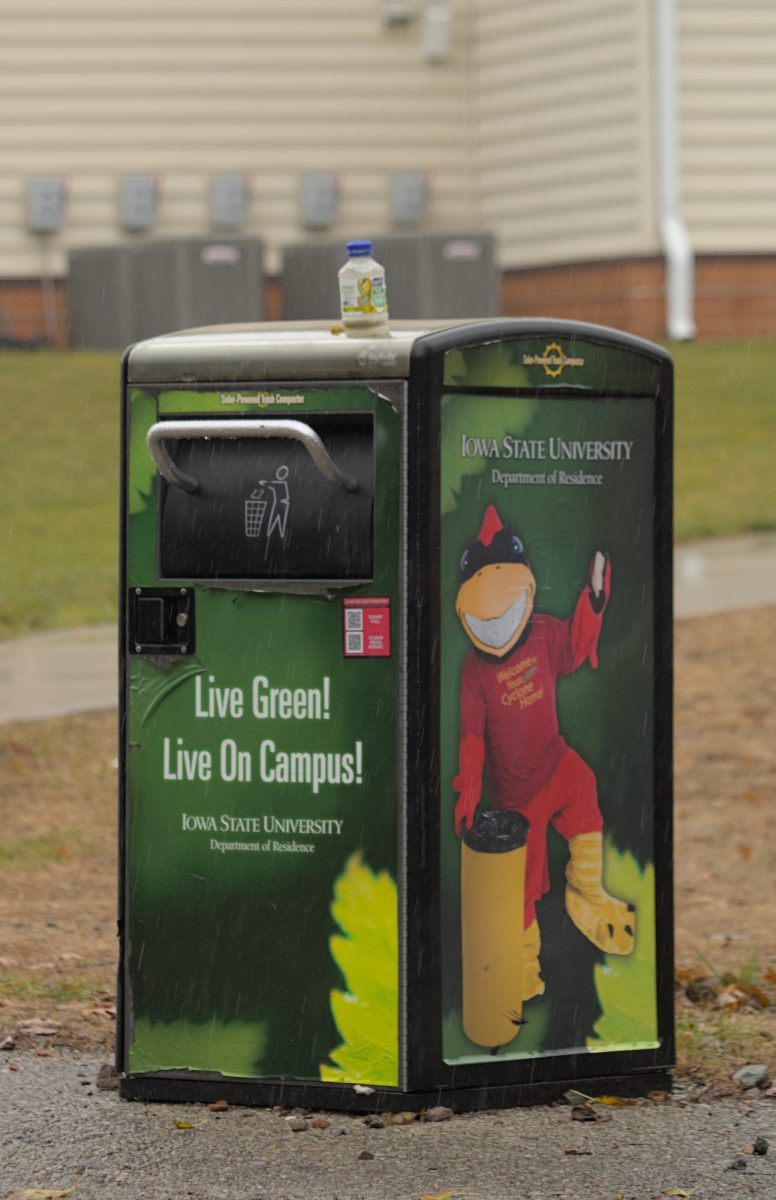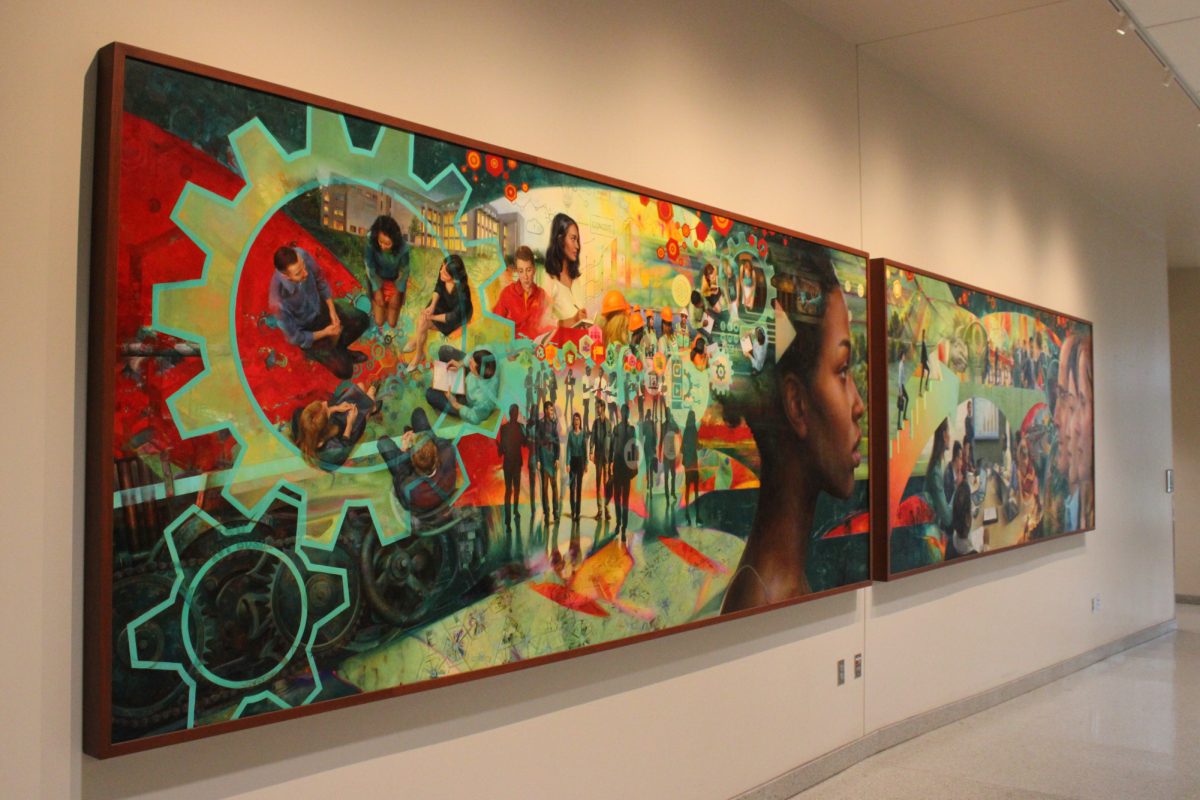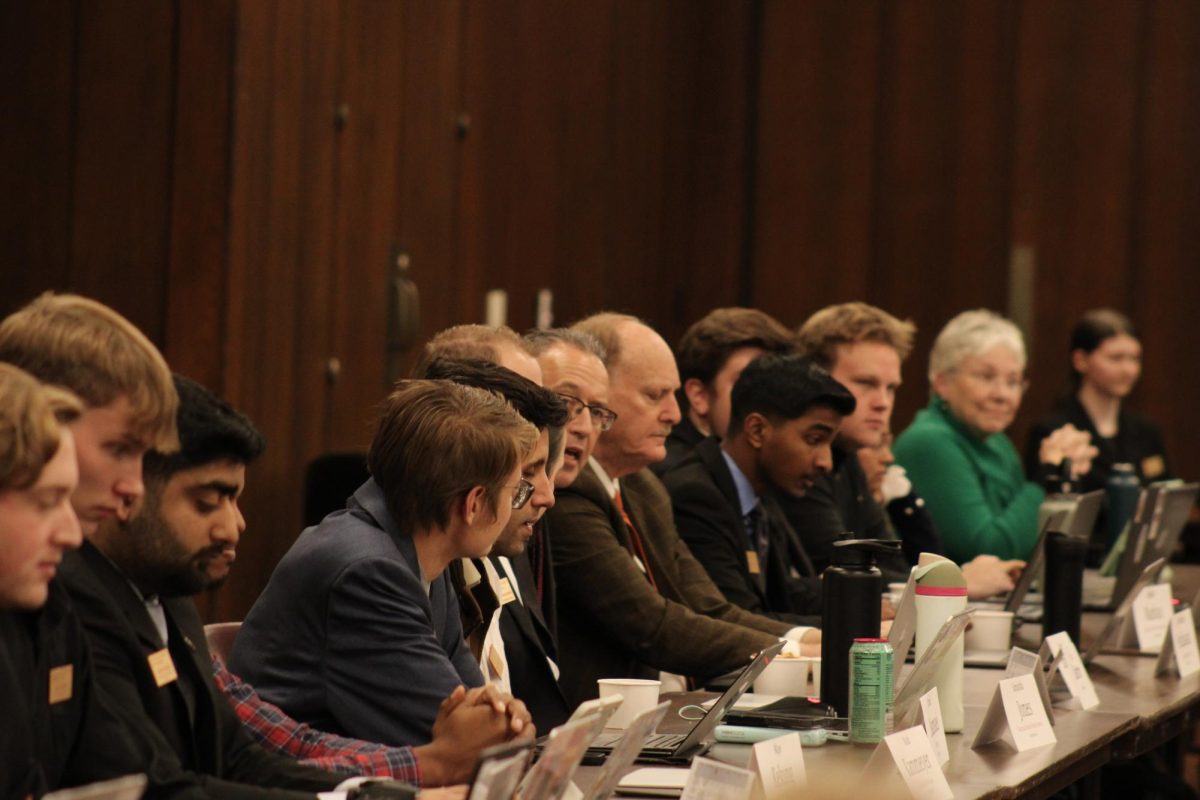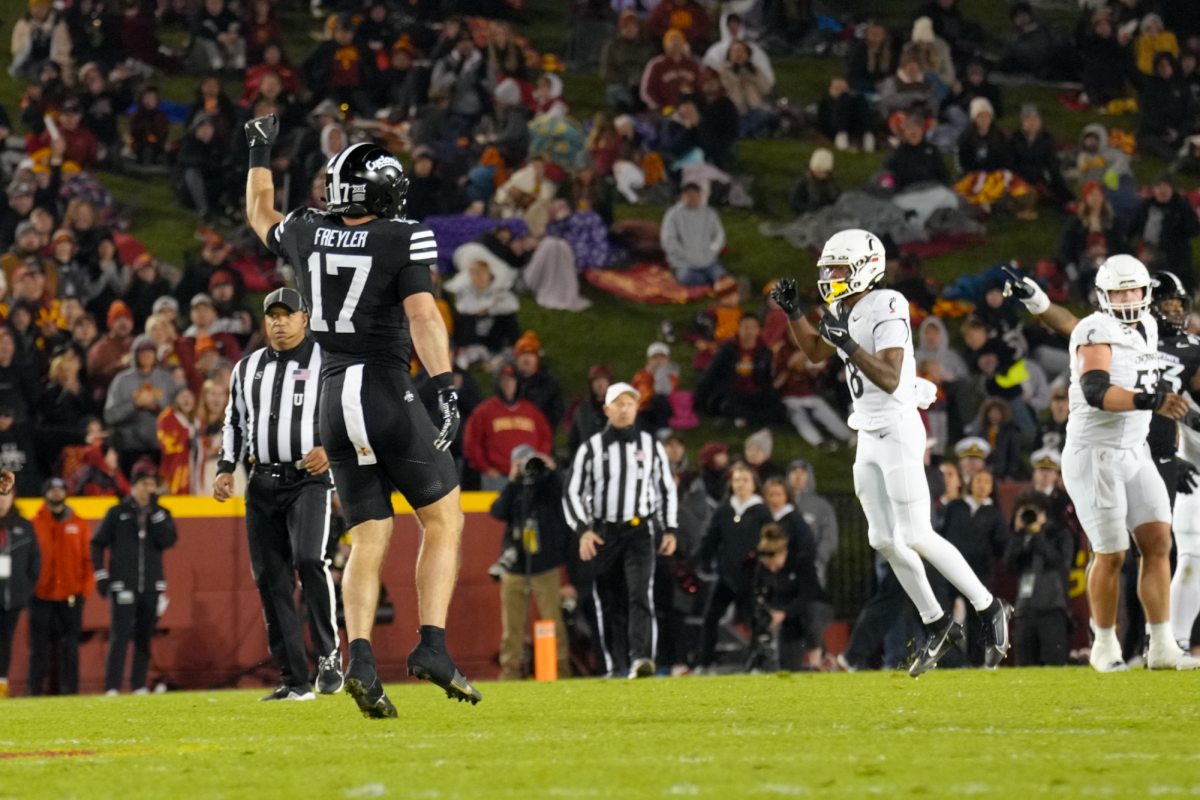Should our universities be ‘vassals of industry?’
June 14, 1995
Mutual parasitism
By Tyler Roach
With the Iowa Senate in recess, Branstad once again rewarded Des Moines
business person Marvin Pomerantz for his significant campaign donations. As
a result, Iowa’s already diseased public universities have been reinfected
with virus-like Pomerantz.
Given that he took little time before insinuating that he intends to
debilitate our public universities by pushing them in the same direction
that he has in the past, what effects can we expect his return to have? One
that is likely is the strengthening of the regents’ chronic commitment to
increased ties between our universities and industry. As Pomerantz claimed
in 1991, “Technology is the key to industrial growth, and that’s where our
state universities must play a critical role.”
That strengthened ties between universities and the business community
have and will prove financially beneficial to the latter is not to be
doubted. What should be called into question is the implicit assumption
that the most important concern of our universities, whether in general or
in relation to industry, is to provide for the welfare of industry.
Industry would also benefit from extensive deregulation. Minimum wage,
environmental protection and child labor laws, however, all serve concerns
more fundamental than that of industrial welfare. Similarly, Pomerantz’s
regard for the university as a mere vassal of industry neglects concerns
fundamental to the social responsibilities of our public universities, and
thus, fundamental to the good of Iowans.
Our public universities’ role as it relates to industry must primarily
be one of critical reflection upon industry conduct. Our professors of
science, engineering and agriculture are responsible for monitoring how
industry behaves. The fact that they have all too often relied on industry
for research funds has rendered them ill-equipped to fulfill their
responsibilities.
It may be objected that a research professor is qualified only in his
or her own field of specialization, not in passing value judgments upon how
industry chooses to exploit his or her field. For instance, a chemist may
know how to synthesize a chemical and why it is toxic, but he or she is not
to pass judgment upon the ethical or social aspects associated with its
use. To do so would be to infringe on the job of those who specialize in
value theory. This objection is unrealistic, however, since current
scientific and technological knowledge is so complex and changes with such
rapidity that oftentimes only a specialist can grasp the real consequences
of its industrial applications. Thus, the very nature of scientific and
technological knowledge makes it necessary that our professors be willing
to make judgments regarding industry’s use of such knowledge.
Personal gains associated with industry-funded, university research
prove too great a lure to ensure a healthy environment for making sincere
value judgments. When the interests of our professors are intertwined with
those of industry, it greatly diminishes the ability of our public
universities to act as agents of objective criticism.
Exchanges taking place between many of our professors and industry
mirror the one which has once again taken place between Branstad and
Pomerantz: You give me money, I’ll give you power. In the case of our
professors, knowledge is the commodity being used for trade, but the
clich about knowledge being equivalent to power should be kept in
mind.
Even if the fact is ignored for the moment that increasing the ties
between our public universities and industry protects vested interests, it
is not surprising that such a policy is supported by Branstad and
Pomerantz. These ties create an unhealthy form of mutual parasitism,
analogous to that which has been blatantly engaged in by its most prominent
political supporters here in Iowa.
Tyler Roach is a senior in philosophy, English and religious
studies from Des Moines.
Copyright 1995 by the Iowa State Daily Publications Board. All rights reserved.
No redistribution without the express written consent of the Iowa State Daily Editor in Chief.






